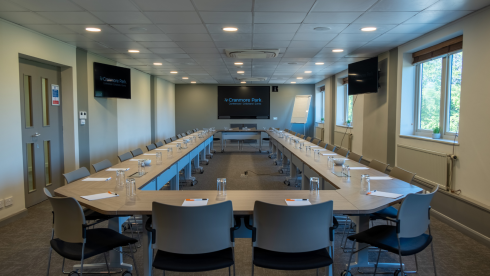8 ways to deliver more effective employee training
23 Jul, 2024 - 3 min read
So, you're running training sessions, but your employees don't seem to be taking the information onboard. What can you do to make your learning and development programmes more effective, ensuring employees gain new skills, acquire knowledge, and are better prepared to do their job to the best of their ability? Here are eight tips for making the most of employee training:
1. Involve management
Getting Senior Mangers involved in training, whether as a tutor or a learner, helps emphasise the importance of particular sessions. This can secure greater buy-in from employees.
2. Set goals
Always have a clear idea of what you are attempting to achieve and then try to measure the outcome. It makes sense to seek feedback on training from the participants and, at a future point in time, test them on the content of the session.
3. Use visual aids
If you're running a training session, it's important to keep things interesting, but also to illustrate the points you are making to help the information stick. Adopting a theme for the training, or creating a slideshow as a focal point, can help make the session - and the content - more memorable.
4. Test new techniques
You might want to give your training an overhaul - potentially in terms of the content or the structure. It is worth testing your innovations on a small pool of employees, to check your new approach works well in practice.
5. Use high-quality trainers
Sessions are likely to be more engaging and effective if the person delivering the training is a good speaker, who is knowledgeable about the subject matter. They must be able to answer questions around the topic, not simply deliver a script.
6. Run regular sessions
Staging one-off, standalone training sessions is unlikely to encourage a learning culture within your organisation. If training is a regular occurrence, employees are more likely to see engagement with these sessions as being part of their job. The learning material is also more likely to be reinforced if follow-up training is planned.
7. Be flexible
The purpose of training is to improve your employees' skills and knowledge. Sometimes it's your job to tell workers what they need to know, but on other occasions, these roles are reversed. If your staff members want training on a particular technique, theory, or process, you should think about organising a session. Employees want to develop professionally and improve their skills and as their employer, you can help them.
8. Use off-site facilities
Running training sessions in dedicated, specialised facilities makes employees feel valued and reinforces the fact the session is important. Removing staff members from their normal workplace environment will help them concentrate as there will be fewer distractions.
Feeling inspired? Contact us at info@cranmorepark.co.uk to speak to one of our dedicated Event Managers.


